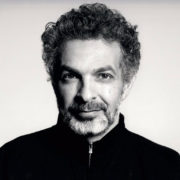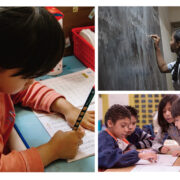By Lyla Schwartz, Executive Director & Paniz Musawi Natanzi, Grant Developer & Lead Researcher at PoMA
When PoMA started off its work in Kabul in 2018, it was initiated as a national mental health awareness campaign, sharing messages about psychological well-being developed for audiences in urban Afghanistan. Mental health considers how we humans think, feel, and act in our everyday work and life routines and how we handle stress, relate to others, and make choices in life. As part of the first[1]year campaign, PoMA produced billboards, wall paintings, a theatre play, public service announcements, video clips, and interviews with mental health experts and national personalities in Pashto and Dari to raise awareness for mental health and normalize conversations on our inner lives without fear of shame, stigmatization, and violence. At PoMA, we sincerely believe that there can be no political peace and social peace without peace of mind, which needs to be nourished and fostered from household to household and from community to community. We foster through local, provincial, national, and transnational conversations, research, and training social networks that advocate for peace of mind in all families, all communities, all of society, and, ultimately, all our own minds.
Based on this holistic approach to peace[1]building, we work with a few social demographics in several provinces in Afghanistan, including, on one hand, male and female survivors of political violence and crime, and on the other hand, radicalized children and youth. All children and youth need to be introduced through education, engagement, and patience to alternatives to violence, regardless of whether living inside or outside of prisons and shelters.
In this short period, PoMA has evolved into an organization led by a female-dominated team and with strong male allies, we have established a transnational and trans-generational network of psychologists, social workers and mentors, community leaders, researchers, and development practitioners focused on fostering just and better access to mental health care services for human capital in government, NGO and IO infrastructures, in enterprises of the private sector and voluntary emergency Psychological First Aid (PFA), communal support groups and individual psychological consultations for survivors of political violence. We challenge victimhood and focus on empowering survivors of political violence by emphasizing their capabilities through training, internships, and employment opportunities at PoMA and with our partners.
The team of PoMA specialists contribute to and foster a complex, intersectional, and holistic understanding and practice of mental healthcare and communal support in hospitals, jails, orphanages, refugee camps, shelters, community, and cultural centers and on the streets, e.g. child laborers, in the modality of war and armed conflict. Our advisory board of national and international senior psychologists, psychiatrists, and social workers is complemented by our team of psychologists, psychiatrists, social workers, academics specializing in gender and social affairs in war and armed conflict, environmental as well as legal affairs specialists, and last but not least professionals in cultural production, including visual artists, musicians, cinematographers, poets and writers on the ground in Afghanistan.
At the core of our mandate stands the goal to de-taboo mental health care by listening, understanding, and doing harm-reducing interventions, problem[1]solution, and investment in the transformation of harmful social behaviors in domestic, public, and workplaces. We believe that when you are at peace with yourself, you are at peace with others; when you take care of yourself, you can also be there for others and when you are at peace with yourself, you can work with the collective on holding stakeholders accountable and improve the life quality and life trajectory of all communities, including socio-economically vulnerable and privileged residents in Afghanistan. Therefore, intra[1]communal empowerment and support systems are a crucial tool in war economies to push for communal organizing allowing people with different needs, e.g. mothers of children with special needs; women and men survivors of gender-based and sexual violence or grieving community members to find a network of people in similar situations and allies to refer to when there is no other instance of support accessible.
Emergencies are always stressful and can multiply anxieties. This, we can also trace with specific stressors particular to the COVID-19 virus outbreak as they affect most populations across continents. Stressors include the risk of being infected and infecting others, especially if the transmission mode of COVID-19 is not 100% clear. Common symptoms of other health problems (e.g., a fever) can be mistaken for COVID-19 and lead to fear of being infected. Caregivers may feel increasingly worried about their children being at home alone due to school closures without appropriate care and support. School closures may have a differential effect on women, who provide most of the informal care within families, with the consequences of limiting their work and economic opportunities and time for self-care. There is also the risk of deterioration of physical and mental health of vulnerable individuals, for example, older adults, and people with disabilities, if caregivers are placed in quarantine if other care and support are not in place. People with pre-existing mental health conditions and associated psychosocial disabilities are facing several risks, including increased rates of mental ill-health and disruption to treatment, medications, and the lifeline of support services. In addition, people living in institutions or institution-like facilities such as prisons, camps, or orphanages may be at higher risk of infection due to cramped conditions. They may not have the same access to care as non-institutionalized people and maybe at an even higher risk of mental ill-health due to reductions in access to visitors or exercise breaks. Conversely, while deinstitutionalization programs are welcome (e.g. closing psychiatric institutions and children’s homes, or freeing prisoners in a bid to reduce the spread of infection), they also carry significant risks, to patient safety and well-being and potentially to COVID-19 transmission, if not carried out well. According to the World Health Organisation (WHO), bereavement, isolation, loss of income, and fear are triggering mental health conditions or exacerbating existing ones. Many people may be facing increased levels of alcohol and drug use, insomnia, and anxiety.
The constant fear, worry, uncertainties, and stressors across populations during the COVID-19 outbreak can lead to long-term consequences within communities, families, and vulnerable individuals who are reinforced through war and armed conflict. Obviously, our socio-economic mobility, as well as access to technology, knowledge, and modern health care, has further implications on how we experience the pandemic: vulnerable communities with a lack of socio-economic mobility experience the deterioration of social networks and rejection from communities due to the stigma towards those who had the infection. People with developing or existing mental health and substance use disorders experience relapses and other negative outcomes because they are avoiding health facilities or are unable to access their care providers. Some of these fears and reactions spring from realistic dangers, but many reactions and behaviors are also borne out of a lack of knowledge, rumors, and misinformation.
The outbreak of COVID-19 brought our work to an abrupt halt in spring 2020, but we organize ourselves and adjusted to the new work conditions. Most of our individual consultation services were just possible online. However, COVID-19 did not stop our staff from meeting detained minors and continuing social work services while promoting social distancing and basic hygienic measures to halt the spread of the virus. As a team, our primary focus was on harm reduction working under the conditions of war and armed conflict, and to ensure that beneficiaries with pre-existing traumas and/or medical conditions are not left alone. As we tried to foster awareness and knowledge around what we knew about the virus, we trained online in practices of mindfulness to decrease stress. We offered grief support for those who lost people to COVID-19 while we accompanied individuals and families who have been exposed to political violence. One form of political violence that reached disturbingly new heights with the beginning of lockdown, domestic violence, showed the necessity to support women and children to find alternative safe housing not just in Afghanistan, but across political geographies. One thing that this pandemic highlighted in Afghanistan and beyond is that societies rely on social workers. However, where there is no infrastructure and political mandate to mobilize social workers to support vulnerable community members by referring them to existing services or creating needed services, a large number of people experience neglect, and in the worst case, death where it might have been preventable through timely care.
The fear of COVID-19 calmed down with the end of lockdown and beginning of summer in Kabul while the militarization of language in medial coverage of the COVID-19 pandemic unleashed images of the virus as armed with an AK47: predictions such as “Afghanistan’s next The fear of COVID-19 calmed down with the end of lockdown and beginning of summer in Kabul while the militarization of language in medial coverage of the COVID-19 pandemic unleashed images of the virus as armed with an AK47: predictions such as “Afghanistan’s next to mental health diseases and with mental health challenges that emerge as a response to environmental factors, the lockdown proved extremely difficult for themselves as well as their family members creating exhaustion, frustration, fatigue, and depression and reinforcing the feeling of hopelessness as also domestic violence skyrocketed.
In today’s Afghanistan, we need an approach to mental health care that respects peoples’ customary and traditionally informed knowledge of mental health and adjusts western insights of mental health care to existing practices. A complementary approach allows advocating for mental health care that uses non-violent healing practices and criminalizes normalized torture and sexual abuse, assault, and exploitation of children, adults, and elderly with special needs. At this point, after almost two decades of liberal and Islamic reconstruction in Afghanistan, it is rather a matter of luck whether members of society have access to mental health care for themselves or family members with special needs. This can change: by involving community members, educating one another, fostering social work and support, and strengthening the efficiency of social welfare and access to legal justice.





